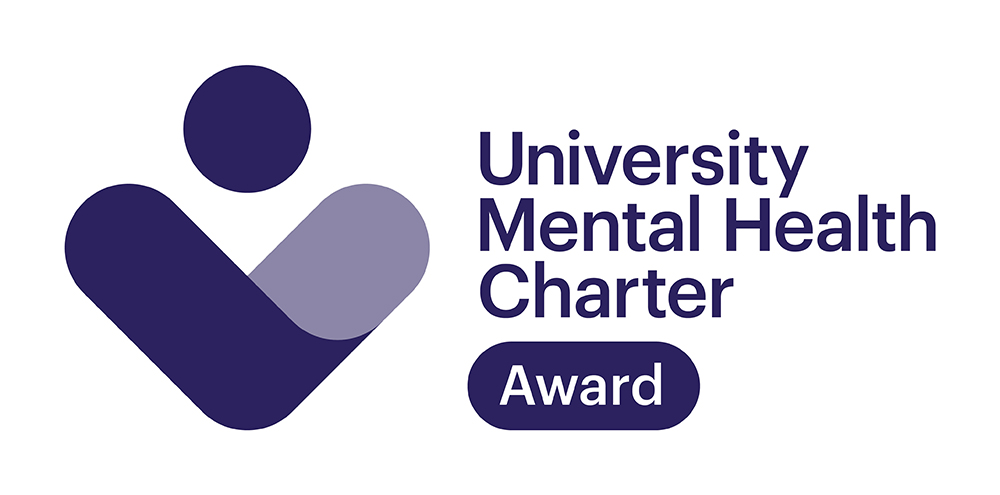Leeds Beckett University - City Campus,
Woodhouse Lane,
LS1 3HE
University Mental health Charter
Leeds Beckett University has received the University Mental Health Charter Award in recognition of its commitment to continuous improvement in mental health and wellbeing.



-
What is the University Mental Health Charter?
"The University Mental Health Charter was created by thousands of staff and students to shape a future in which everyone in higher education can thrive" (University Mental Health Charter).
The Charter is a voluntary programme, that adopts a whole–university approach to mental health, to support universities to become places that promote the mental health and wellbeing of all members of the university community.
The principles of good practice, outlined in the Charter, have been arrived through a research and consultation process involving 181 universities and organisations. The Charter document was peer reviewed by a range of academic, clinical and research experts.
-
Why is this important for our community?
Developed in response to the growing concern about the mental health of university communities, The Charter is the first evidence-based guidance that considers both student and colleague wellbeing, in the context of the environment that they study and work in.
Given the severe negative consequences that poor mental health can have for learning, achievement, health and life, the wellbeing of university communities is clearly an important issue that requires attention, resource, expertise and action.
-
Our commitment and benefits for you
Colleagues from the university and Students’ Union, with the support of a colleague and a student advisory group, are working to understand how our university is performing against the principles of good practice, outlined in the Charter.
Colleagues and students have developed a wellbeing commitment which explains our approach to wellbeing, why we are trying to achieve charter status, and what it will mean for members of our community.
Our Wellbeing Commitment
We know that working and studying in a mentally healthy community supports us all to attain good wellbeing, feel happier, have clarity of purpose, and meet our goals. Our background, experiences, environment, and relationships can all affect our mental health, and mental health in turn affects all parts of our lives – how we feel, function, and interact with others.
We are all unique, as are our experiences and needs. To achieve a whole university approach to wellbeing that is meaningful for the whole community, we will create an inclusive and understanding environment that values and listens to all voices. As a university we recognise the work that has already been done to increase awareness, open conversations and improve student and colleague wellbeing.
We have more to do – we want to be a university where stigma doesn’t exist; where any student or colleague who experiences distress finds this is met with openness and compassion; and where they are supported to access helpful resources and services.
A whole university approach to wellbeing and mental health requires us all to take action, for ourselves and for others. It recognises that, like physical health, we all have mental health that we need to recognise and value. Together, we will actively encourage healthy behaviours to improve wellbeing.
-
How do I get involved?
To achieve a university-wide change that is meaningful to the whole community, we need the support of everyone. We’re continuing to work with students and colleagues to understand and meet the needs of the entire Leeds Beckett community. Many of you will have already been approached to take part in panels and focus groups. There will be more opportunities for you to tell us about your experiences and your ideas as we progress towards charter status.
To create cultural change that can realise the vision of becoming a mentally healthy university requires every one of us to play our part.
















